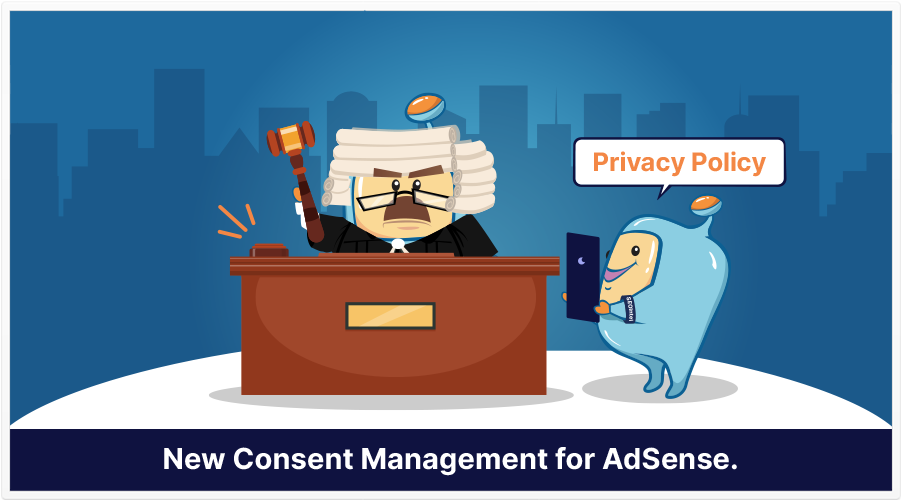
This news item is on the topic of privacy, which can be seen as a legal one. This news item should be seen as informational, and it’s not meant to replace the advice of a lawyer or attorney.
All responsible webmasters know the importance of online privacy–specifically, having an updated privacy policy and keeping within the boundaries that are set by that privacy policy.
And for most webmasters, this, in theory, is fine.
But what if you have 3rd-party assets on your site? What if these assets do collect visitor data in a way that’s not within your original privacy policy?
Autoresponders, or email automation services, which ask users for an email address, are, in fact, collecting some form of information.
What about something like Google Analytics? Is it possible that it collects information?
These questions bring us to consent management.
Consent Management
Consent management basically means, first, informing visitors that some of their data may be collected. (If there’s enough of their data available to be collected, it can be personally identifiable.)
Second, it means asking them to approve of the use of their data.
Third, for publishers/webmasters who are trying to win the bids of advertisers, it’s important that there’s an understanding of what will, and will not be, allowed to happen on the site, as far as data collection is concerned.
In some cases, the European General Data Protection Regulation (GDPR) may require you to gather and manage user consent, and the California Consumer Privacy Act (CCPA) may require the option of opt-out requests.
That can be a lot.
Well, Google recently announced that, in AdSense Auto ads, there are new features to help with consent management.
These features let you give your visitors the ability to manage their privacy preferences and data.
If you run ads, you might be happy to learn that these features also let you gain consent for 3rd-party ads. This is great, because it’s one less thing to worry about, and frees you to focus more on growing your content and ad revenue.
These features respect geolocation. By that, I mean that if, for example, a visitor from the UK arrives at your site, they’ll possibly be greeted by a set of consent-management options appropriate for their country.
Likewise, if it’s detected that a user from California has arrived at your site, a CCPA opt-out form will be displayed to them.
This is done in integration with the Interactive Advertising Bureau (IAB) Europe’s Transparency and Consent Framework (TCF) v2.1, which standardizes this process and offers a common language for obtaining consent under the ePrivacy Directive and GDPR.
Fulfilling the Law, Your Visitors’ Privacy, and Ensuring Advertiser Compliance
These features, as you’ve seen, help you to meet the legal requirements of various governing bodies. Where appropriate (as with a California visitor), they allow them the appropriate opt-out option. And finally, the limitations applied by these are respected by AdSense’s advertisers–it’s built into the system that way.
So, if you’re an AdSense publisher looking to better streamline your privacy obligations, the new Auto ads features are something to consider.
Source: blog.google.com